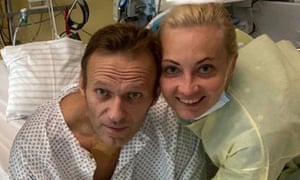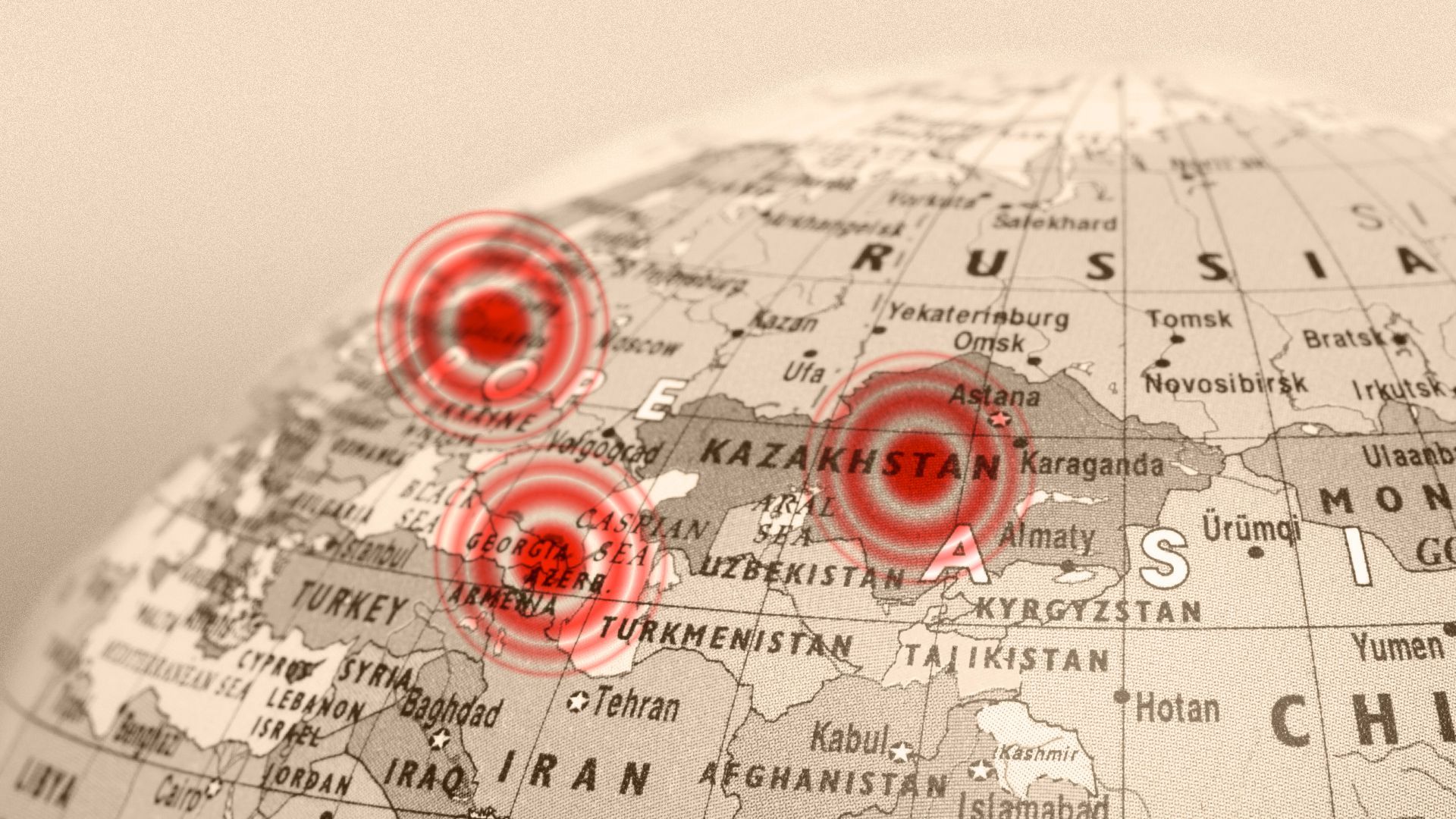Sow Instability ... Live With It ... Or Deal With It
Sow Instability ... Live With It ... Or Deal With It
"Russia is not the dominant power in any of the regions of the former Soviet Union.""[The current trio of upheavals] really shed light on the situation.""[The Kremlin may not have stretched itself too thin with its foreign policy agenda, but] it certainly has to pay more attention to its neighbourhood now, more attention to its alliances.""The people in Belarus are very close to the people in Russia -- basically you have the same language and very much the same culture.""So I think that on that score, people in the Kremlin are looking very closely at the techniques used by the organizers of these demonstrations.""They're studying it very, very closely because they believe something like that could be used, will be used, in Russia when the situation is appropriate."Dmitri Trenin, director, Carnegie Moscow Center"Russia's influence there [Central Asia] remains extremely high.""The new post-Soviet generation does not suffer from nostalgia for the Soviet times and does not consider Moscow a political trendsetter."Arkady Dubnov, political analyst, expert, Central Asia
 |
| Credit...Sergey Ponomarev for The New YorkTimes |
 |
| Alexei and Yulia Navalny. Photo: @navalny/Instagram |
President Putin yearns for the lost days of the Soviet Union, when Russian power and influence was at its height and neighbouring near-abroad countries were but colonies embraced by the tentacles of the great political octopus that was the USSR. When Soviet Russia held sway in the Middle East, and held the balance of power that accompanies the status of a world-class superpower, a status it shared with the United States through decades of conflicted relationships marked by suspicion, distrust, propaganda and tension in the competitive atmosphere of nuclear threat.
It has been a great disappointment to the Kremlin that former satellite states in eastern Europe, in Russia's near-abroad continue to feel so ill-done-by that they shrink in fear at the very notion they would wish to continue a firm alliance that would surely grip them with an iron vice. They have turned toward the West, looking for NATO membership, an alliance that would purchase them a guarantee of military defence against the memory of the giant that once strode the world stage.
Still, the consanguinity of closely-shared geography, ideology and a continuation of totalitarian-style governance continues to link Russia with a number of its former clients, and that a number of them are experiencing political-social upheaval with stirrings of democratic ambition is a worrying sign that there is an impending breakaway from the solid footing Russia has maintained in Kyrgyzstan, Belarus, Armenia and Azerbaijan. Following in the determined footsteps of Ukraine and Georgia, a dreaded apparition of sovereignty and democratic choice.
Absence, in Russia's attention turned elsewhere did not make hearts fonder of the Russian Federation's position in eastern Europe. Where former satellites still shudder at the prospect of military invasion and the spectre of the Crimean Peninsula looms large as a warning. Just how thin can a country whose petroleum and gas industry was struck a blow in the double whammy of falling prices and a world oversupply, faltering under sanctions and a restive population, spread itself?
Well, when ambition to make friends and influence nations leads to entering the fray in the mid-abroad as when Mr. Putin committed to aiding his Syrian counterpart in destroying the lives of Sunni Syrians and airbombing hospitals, medical clinics, schools and civilian enclaves of Sunnis in exchange for an air base and a deep seaport in the Mediterranean, reclaiming its former high profile position in the Middle East, it constituted a distraction from its near-abroad.
Now, the Kremlin faces a backyard rebellion with former Soviet republics and regions from Central Asia through the Caucasus and into Eastern Europe, in a turmoil of mass dissent and a turn toward the West. Even as competitors, from Turkey to China challenge the once-dominant role of the former Soviet territory with their very similar ambitions. Nagorno-Karabakh presents a dilemma for Russia between Armenia and Azerbaijan. Russia's military treaty with Armenia, it specified, refers only to Armenia proper, not the breakaway, majority-Armenian Nagorno-Karabakh. So it was quite inconvenient that Azerbaijan admitted to bombing inside Armenian borders in their violent fracas.
 |
| Keeping a watchful eye on Russia's “near abroad Reuters |
 |
| Illustration: Aïda Amer/Axios |
Labels: Armenia, Azerbaijan, Belarus, Conflict, Kyrgyzstan, Nagorno-Karabakh, Recep Tayyip Erdogan, Russia, Turkey, Vladimir Putin
Labels: Armenia, Azerbaijan, Belarus, Conflict, Kyrgyzstan, Nagorno-Karabakh, Recep Tayyip Erdogan, Russia, Syria, Turkey, Vladimir Putin

<< Home